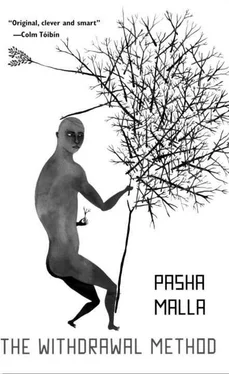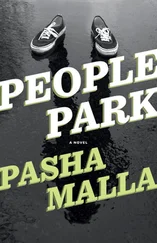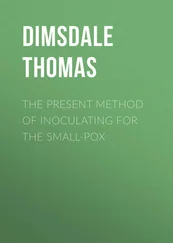"Who would like to try their hand at besting the mighty Turk?" demanded Maelzel.
The stands came alive with fluttering hands and cries. Maelzel pointed to a portly, elderly fellow in one of the front rows. Amid jeers from the gallery, he introduced himself as Paco, and at Maelzel's instructions he waddled over and took his seat on the other side of the chessboard.
"White or black?" asked Maelzel. Paco pointed to the black king, prompting more heckling from the audience. Maelzel cranked the mechanism, notifying Schlumberger that the game was about to begin.
The Turk made its opening move. Maelzel stood nearby, doing his best to provide illustrative commentary, in fact preoccupied with the thought of his feverish companion huddled inside the cabinet. He grew more settled when it became obvious that Schlumberger still had his wits about him: the Turk gave away a rook and a bishop, but Paco was a weak player, and unbeknownst to him Schlumberger was mounting a subtle attack based around both knights, the queen, and — much to Maelzel's glee — a rogue pawn that was stealthily making its way across the board.
As contestants tended to do, Paco quickly took to treating the Turk as a living thing, shaking his head when a turn took too long, wagging stolen pieces in its wooden face. The crowd divided into sides, with Paco's supporters mocking the Turk's every move, and vice versa.
After fifteen minutes or so Maelzel claimed to need to rewind the mechanism; the three turns of the crank he made were the sign for Schlumberger to wrap things up. A few moves later, the automaton called out, "Check," and all in attendance went wild. Paco, perspiring, sacrificed his rook, the Turk swung its remaining bishop across the board, released its grip, paused, and added, "Checkmate."
Once again the crowd erupted. An ironic chant of "Paco, Paco!" rose up while the old man cursed the Turk, pointing at it with a quivering sausage of a finger. Maelzel, glancing quickly at the board, was shocked to notice that the call had been premature: with one backward drop of his remaining knight, Paco's king would have been safe, forcing the Turk to cede the game. But before anyone could notice, Paco swept the pieces from the board, then stormed cursing out of the theatre, shaking his fists. Beneath the din that followed, Maelzel heard a cough from within the cabinet, followed by a long, plaintive groan.
IN SCHLUMBERGER'S hotel room, Maelzel hovered nearby while the doctor, a wiry American hidden behind a mess of grey beard, tended to his friend. The vomiting had finally subsided, but there was little to indicate that Schlumberger was doing any better; he lay helpless, emaciated and silent, like a bundle of twigs left for kindling.
The doctor turned and regarded Maelzel severely. "It's as I suspected. The infection's spread into his liver — that's why the skin appears jaundiced."
Maelzel breathed.
"Please, Mr. Maelzel," said the doctor, "if we can go into the other room."
In the adjoining room, Maelzel's own, the Turk sat glowering in the corner; the other automata lay piled around in various states of disarray, abandoned after opening night.
The doctor stroked his beard. "I have to tell you, Mr. Maelzel, that your friend might not make it through the night."
Maelzel nodded vacantly. He needed a drink.
"The fever is so far advanced there's little more we can do than wait." The doctor paused, staring at the Turk. "But if I may, Mr. Maelzel, could I ask you something?"
Maelzel shrugged. He was thinking, as he had been for days, of what might have happened had he allowed Schlumberger a night's rest — just one night of respite in the room, Maelzel spooning soup into his mouth. His thoughts were interrupted; the doctor was speaking.
"The Turk — has Mr. Schlumberger got anything to do with its operation? People are talking. They say he's actually inside, manipulating its arm on the chessboard. Since he's been ill, you haven't performed, and that first night, when in the middle of your show you claimed a mechanical malfunction, was the night you first contacted me."
The doctor paused, gazing at Maelzel, who in turn gazed past the louvred doors into Schlumberger's room. Then his face twisted into something ferocious. He turned to the doctor, breath whistling through his nostrils, eyes narrowed.
"Get out," he hissed.
"I didn't — " began the doctor, but stopped himself. Before him stood a man who, regardless of his secrets (and they were many, the doctor could see, and various), was ruined. The doctor collected his things, bowed quickly, and was gone.
Left alone, Maelzel pulled a bottle of wine from one of his many cases, uncorked it, and sucked back nearly half before making his way into Schlumberger's room. Lying down on the bed beside his companion, he felt the heat trapped in the sheets, saw the glassy, empty look in Schlumberger's eyes, could smell the sickly scent of rot and vomit from his mouth.
"Sorry, Johann," wheezed Schlumberger. "You will find someone else. There are many great chess players in America."
Maelzel shook his head. "Never, my friend. This is the end. No more illusions, no more secrets, no more hiding men in the bellies of machines."
Schlumberger coughed and something rattled deep inside him. His body bucked slightly off the bed and fell, shuddering. He settled back and closed his eyes. "I love you, Johann," he whispered, his voice papery and crackling.
"I'm sorry," said Maelzel. "You could have been a master, one of the great chess men of history. But I had to stuff you inside a box. What kind of love is that?"
But there was no reply. The mouth had gone slack. Maelzel leaned in, felt what he knew were Schlumberger's last breaths coming in short, dry gusts on his cheek. Quietly, gently, Maelzel laid his head on Schlumberger's chest, his ear against the dull throbbing of his companion's heart, and waited for it to stop.
MAELZEL STOOD swaying before the Turk, the pitching of the Louisiana-bound Otis amplifying his already compromised sense of balance. He gazed at its wooden face, paint starting to peel, turban unravelling. The only thing that still held life was its eyes, piercingly blue, burning with what always seemed to Maelzel something malicious, something evil. Perched behind its empty chessboard, the Turk sneered at him through the drooping points of its horsehair moustache.
Hollering came from above-decks from the ship's American crew, followed by a high-pitched Spanish reply — without doubt the handsome Cuban boy, Luis-Enrique, whom the ship had taken on before leaving Havana. Maelzel listened for more, but heard nothing further, just the gentle crash of waves against the hull, the mournful creaking of rigging and beams.
Turning away from the Turk, his vision swimming, Maelzel gazed around, trying to focus on the various other automata that packed the hold of the Otis: the Conflagration of Moscow, the Melodion, the Pyrrhic Fires, the Trumpeter, the Mechanical Theatre, the slack-rope dancer that Schlumberger had nicknamed "Guppy."
Schlumberger. Standing there in the dim light of the hold, yet another emptied bottle of wine dangling from his hand, Maelzel imagined that sheepish face, the shy grin, the slight stoop in his shoulders, likely aggravated by all that time hunched over inside the Turk — hours upon hours, curled up in there working the machine like a trained rat while Maelzel tromped about showboating to the crowds. A sour bubble of guilt and nausea rose in his throat.
As he vomited, the ship pitched and Maelzel was sent careering forward, bile and wine splashing down the front of his coat. The bottle flew from his hand and smashed on the floor, while Maelzel crashed into the cabinet, tumbled over, and landed face to face with the Turk. Maelzel could feel it mocking him. He closed his eyes; his head swirled and spun and danced. Spent, he collapsed finally onto the chessboard, arms splayed out, and lay there unmoving as the hull rocked with the undulating sea.
Читать дальше












